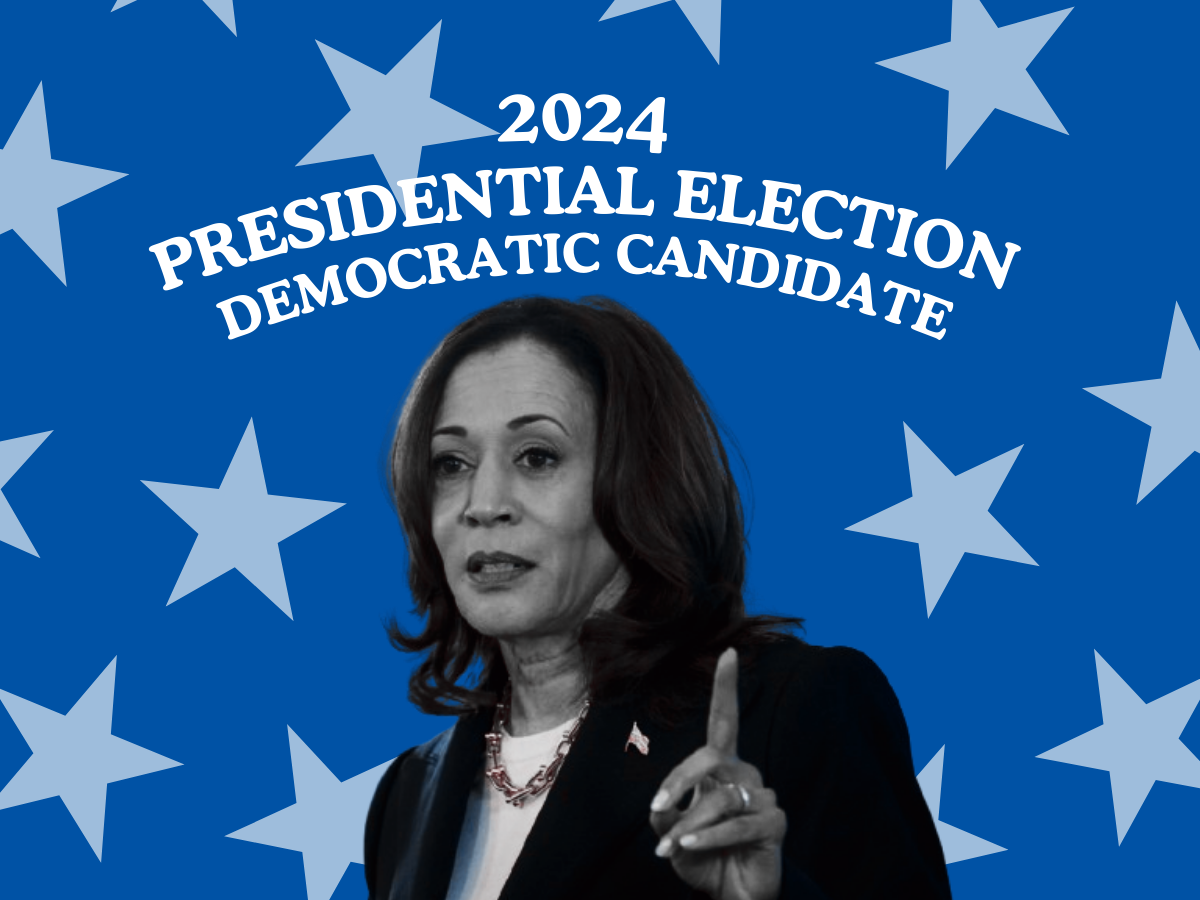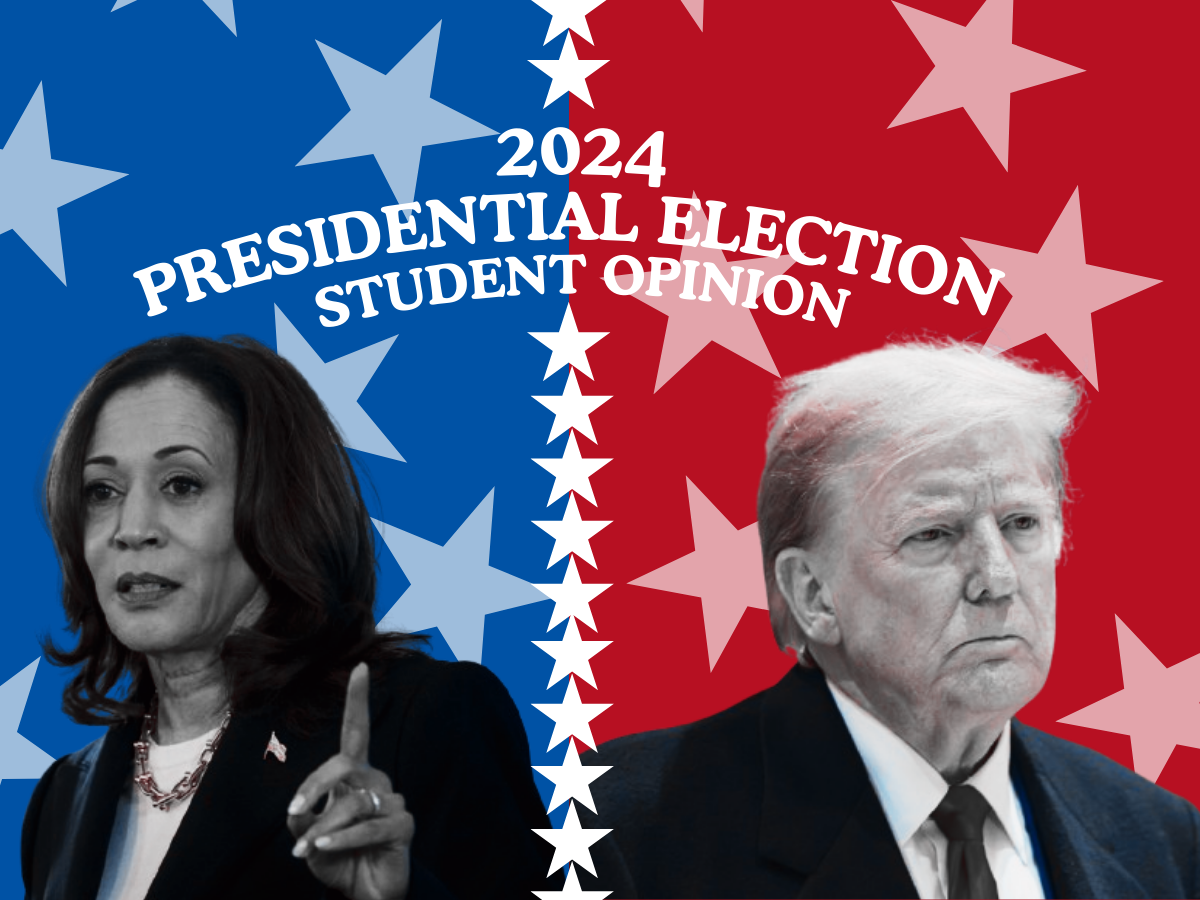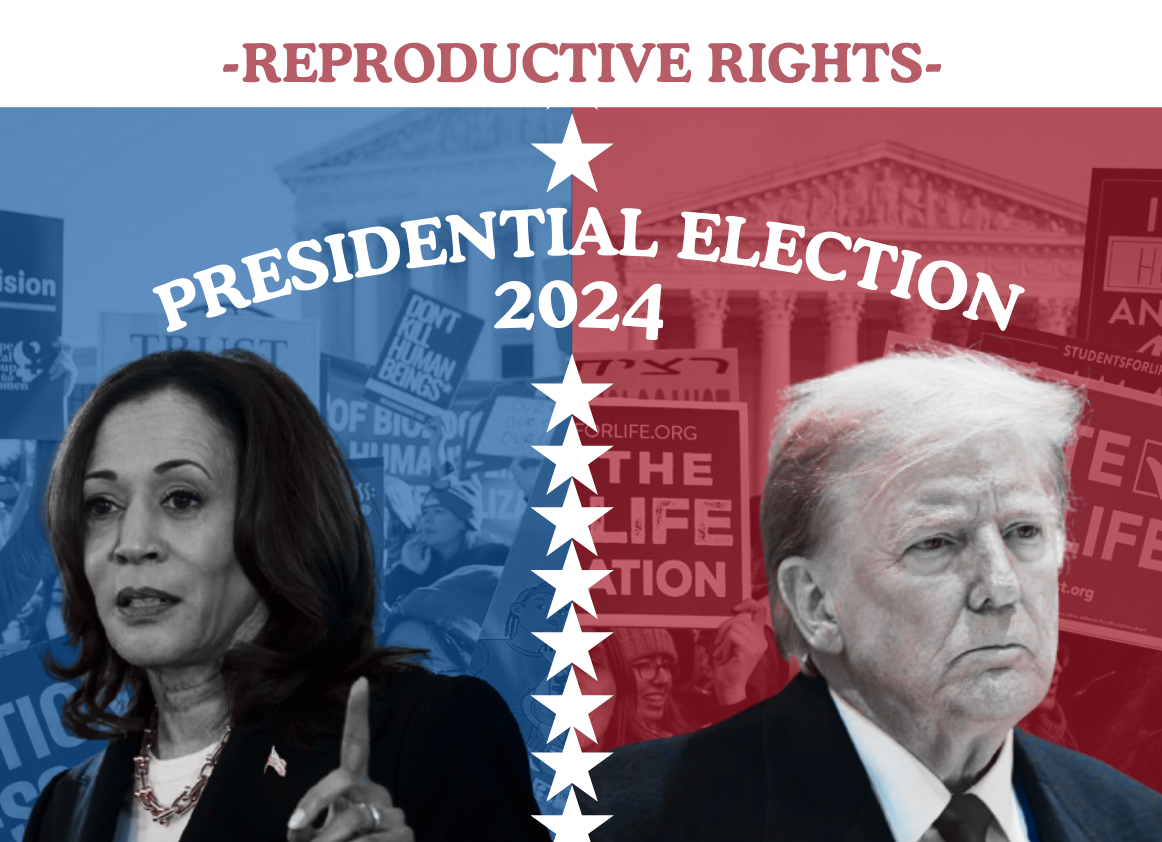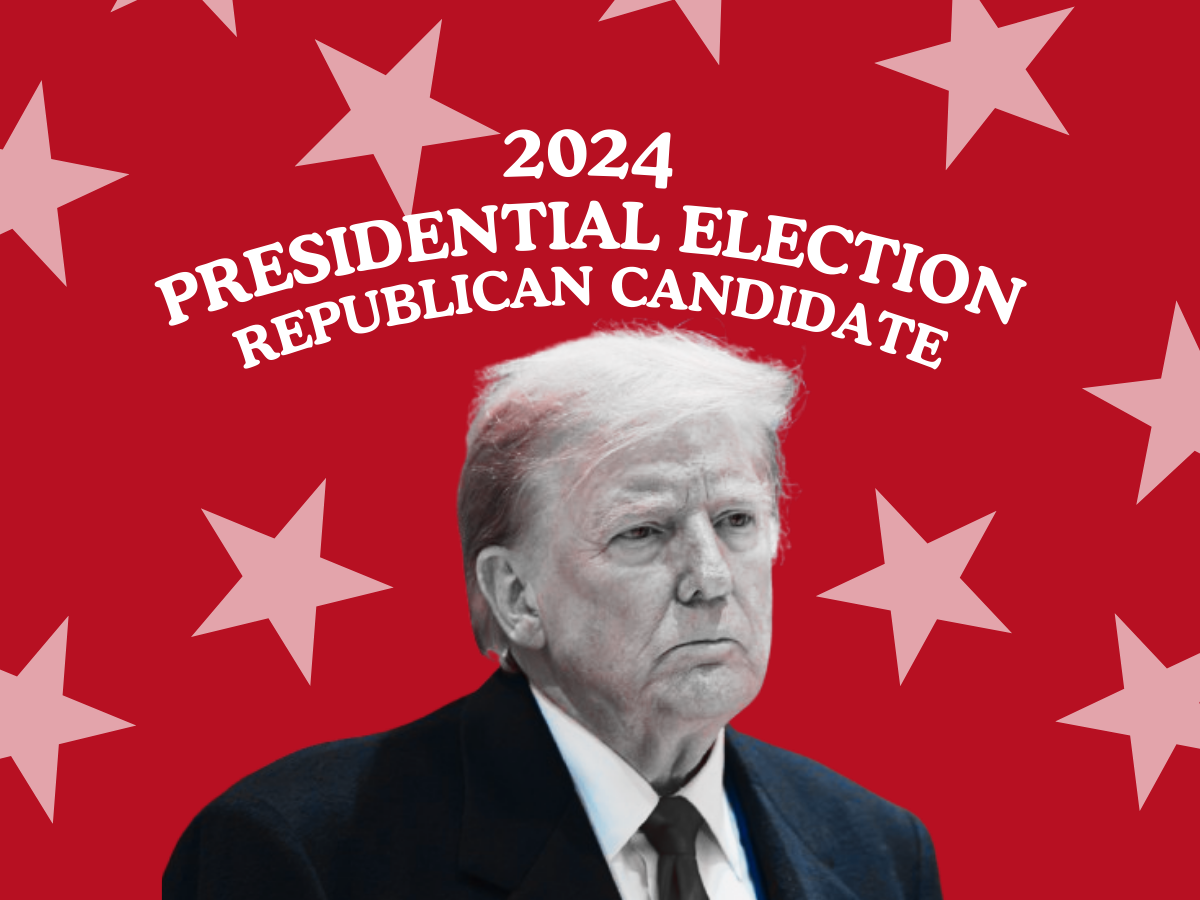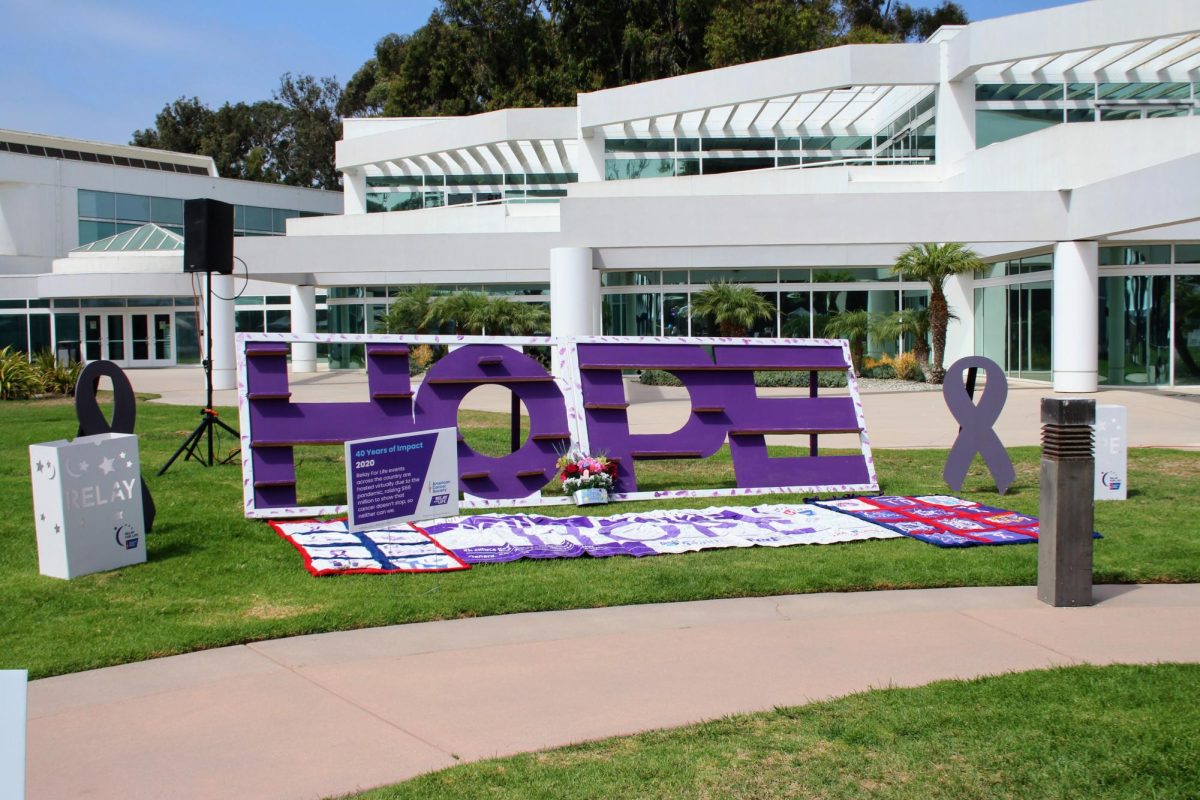This article is a continuation of the 2024 Presidential Election series that delves into all facets of the 2024 Presidential Election, held on Nov. 5, 2024. If you are curious about student opinions at Foothill Technology High School (Foothill Tech), presidential candidates or campaign maps, this series is for you.
Picture this: From the wreck of a massive grandfather galleon at sea emerges a new player, manned by a new and determined crew.
The young boat afloat in bloody water is the Harris-Walz campaign, hastily nominated by the Democratic Party on Aug. 6, 2024, as President Joe Biden abruptly ended his reelection run for president after the disastrous June 27, 2024, general election presidential debate.
Kamala Harris, Vice President of the Biden administration, and Tim Walz, the current governor of Minnesota, now face the Republican candidate and running partner, former President Donald Trump and U.S. Senator J.D. Vance, respectively. Check out this article by the Foothill Dragon Press (FDP) to learn more about the Republican candidates.
But who exactly are these two individuals who may be the future leaders of our nation, and what does their platform stand for? Let’s first start with Kamala Harris’ background.
Harris was born October 20, 1964, in Oakland, Calif., the eldest of two daughters. Her mother and father, both immigrants seeking a doctorate from University of California, Berkeley, were from India and Jamaica, respectively, and were known to be involved in the civil rights movement on campus.
The family moved around the Midwest before Harris’ parents divorced, resulting in her moving back to Berkeley, Calif.
From there, Harris went on to study political science and economics at Howard University and earned a law degree in 1989 from the University of California College of the Law, San Francisco (UC Law SF).
Following her trajectory in law, Harris worked as a deputy district attorney in Alameda County, Calif. The NDAA states that district attorneys (DA), otherwise known as prosecutors, “represent the government in criminal cases and are responsible for ensuring that justice is served by prosecuting individuals accused of committing crimes.”
According to Brittanica, she earned “a reputation for toughness as she prosecuted cases of gang violence, drug trafficking and sexual abuse.”

Throughout the 1990s, Harris forged her path in the realm of public justice. In 2003, she became the District Attorney of the City and County of San Francisco, and proceeded to complete two terms there.
During her time in San Francisco, Harris was part of a team that was able to clear backlogged homicide cases, forming the Hate Crimes Unit which focused on hate crimes against LGBT students, sanctuary city policies and more.
She also faced backlash on multiple occasions, the most prominent being her refusal to deliver a death sentence in 2004 when a man shot and killed a police officer. The Marshall Project stated, “The decision permanently fractured Harris’ relationship with the city police.”
In 2011, Harris made history when she was sworn in as California’s Attorney General as the first African American, South Asian American and first woman. She also served two terms in this position.
As attorney general, she enacted changes that affected millions of Californians in cities like Ventura. Among other accomplishments, she helped develop policies on health care and homeownership, opposed the ban on affirmative action, mandated online privacy policies with big tech companies and defended LGBTQ+ rights by opposing Proposition 8.
Throughout her years as a prosecutor, Harris has also been called too soft, too tough or too ambiguous. Her book, Smart on Crime, co-written with Joan O’C. Hamilton, answers those calls. Her strategy in court emphasizes “the significance of both preventing and punishing crime, as well as safeguarding defendants’ rights and limiting excesses,” the NCJA asserted. At some of her decisions, fellow liberals balked, while with others, she drew praise from progressives.
Additionally, there were issues that remained unsolved. During her terms as Attorney General of California, she struggled with overcrowding in state prisons with the Brown v. Plata 2011 Supreme Court Decision. She also faced a record of wrongful convictions, and many disagreed with her criminal penalties against parents of truant children.
In 2017, when an opportunity opened up to become a U.S. Senator for California, Harris took the chance and won the election. She once again made history as the second African-American woman and first South Asian-American senator.
Then on Jan. 21, 2019, Harris took another chance by formally announcing her run for president as a Democrat. Would she make it?
In fact, she would not. She would eventually drop out in the middle of the race, but she had other plans. In spring of 2020, Harris was announced as President Joe Biden’s running mate in the race against Trump’s reelection.
Inaugurated as Vice President of the United States on Jan. 20, 2021, Harris was given the responsibility of addressing root causes of increased migration from Latin America to the U.S. via the southern border.
According to PBS News, “Harris’ backers say she demonstrated leadership by leveraging her stature to win investments that might curb migration years down the road.” In other words, she was playing the long game.
However, critics pointed out that “she could have done far more but chose a less risky path, ensuring the problem only worsened.” This is a point of weakness that Republicans have been eager to draw attention to. Some voters also doubt her promises of cracking down on border issues as president.
As vice president, Harris was also tasked with preserving women’s reproductive rights, such as access to abortion, which has been a serious point of contention in many states following the Dobbs v. Jackson Women’s Health Organization in June 2022.

Maintaining the boat in roiling waters alongside Harris is Tim Walz, the Democratic governor of Minnesota. He had been vetted amongst two other notable candidates, Pennsylvania Gov. Josh Shapiro and Arizona Sen. Mark Kelly.
Thus far, Walz has been a crowd favorite. He sports a unique resume, and has been judged to balance Harris in their campaign.
Born and raised in Nebraska, Walz grew up in a small rural town. According to BBC, “[He] farmed and hunted in his summertimes and enlisted in the Army National Guard at 17. He would serve in the volunteer force for 24 years.” He also later attended Chadron State College (CSC), graduating with a social science degree, as well as earning a master’s degree in educational leadership from Minnesota State University, Mankato (MNSU).
He spent a year teaching abroad in China before accepting a position at a high school teaching social studies and coaching the school’s football team.
With this unusual, but intriguing past, Walz ran for the U.S. House of Representatives from Minnesota’s 1st congressional district. Once elected in 2007, he served till 2019, establishing his stance as a moderate, as well as an advocate for veterans. His tenure consisted of opposing the Iraq War, actively voting against bails in the 2008 financial crisis, affirming former President Barack Obama’s Affordable Care Act and more.
In 2018, he declined to run for a seat in the U.S. Senate, instead running for and winning the seat for Governor of Minnesota.
According to the official Minnesota state site, Walz’s accomplishments as governor include “providing universal free school meals for students, protecting reproductive freedom, strengthening voting rights, laying the groundwork to get Minnesota to 100% clean electricity by 2040, cutting taxes for the middle class and expanding paid leave for Minnesota workers.”
Walz had effectively gone from Nebraska-born veteran and Minnesotan educator to a Democrat representing a conservative district in Congress and a governor of his adopted home state (Politico).
The Harris-Walz campaign has received a surprising amount of attention and support since its official announcement in the beginning of August.
Pop culture references continue to be made in support of the two, such as Harris’ rebranding with social media trend “Brat,” as well as Taylor Swift’s endorsement of Harris following Trump and Harris’ presidential debate on Sept. 10, 2024.
Perhaps evident from the aforementioned pop culture references, Harris and Walz have also attracted many young voters, won over by their family-oriented personas.
This is not to say that there are no critics of the platform. As with any political campaign, there is a slew of strong opposing groups. According to the New York Times (NYT), Harris’ surge of popularity may be ebbing, and some have also attacked Harris’ handling of the border crisis. Her vague stance on policies have also drawn concern.
We encourage you to conduct further research on the 2024 Democratic candidate and running partner. Make change in our community, state or nation by participating in civil discourse and educate yourself on current policies so that you may have a voice in protecting your and peers’ rights.
Whether you are a registered voter or not, engage, elaborate and educate!


